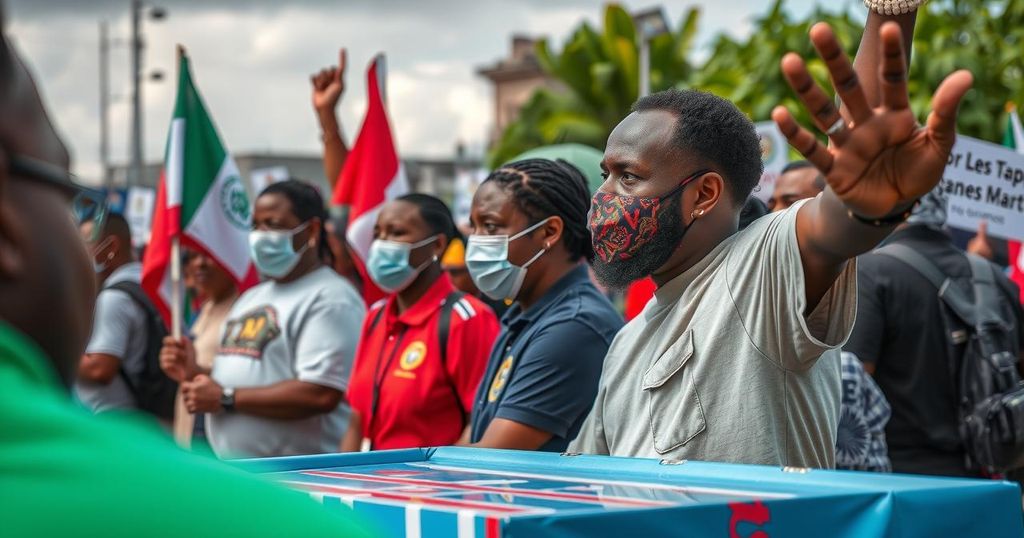Comoros Opposition Denounces Legislative Election Results Amid Fraud Allegations

The opposition in Comoros has rejected the results of the recent legislative elections, citing severe allegations of electoral fraud and a significant boycott by oppositional groups. Claims of ballot box manipulation and irregular voter turnout have been raised by opposition leader Daoud Abdallah Mohamed, emphasizing ongoing political tensions in the archipelago. President Azali Assoumani dismissed these allegations, insisting on the legitimacy of the electoral process.
An opposition leader in Comoros has publicly denounced the results of the recent legislative elections held on Sunday, alleging widespread fraud due to a significant boycott by opposition parties. Daoud Abdallah Mohamed, the leader of the United Opposition coalition and a former interior minister, claimed that the electoral process was characterized by “gross fraud, ballot box stuffing” and reported cases of votes exceeding registered voters in several polling stations.
The independent electoral commission for Anjouan declared that candidates from the ruling Convention for the Renewal of the Comoros (CRC) party had won a substantial majority, garnering between 60 and 100 percent of the votes with a reported voter turnout of 70 percent. Observers noted irregularities in ballot box filling amidst questionable voter turnout. Furthermore, within the constituency of Moheli, four out of five had a sole candidate from the ruling party, leading to concerns over the legitimacy of the elections.
Current President Azali Assoumani, who has been in power since 2016, dismissed the fraud allegations and challenged the opposition to substantiate their claims. Mohamed has since confirmed that the United Opposition will not partake in the upcoming second round of voting scheduled for February 16, emphasizing the group’s continuous lack of faith in the electoral process due to these issues.
The Republic of Comoros is a small archipelago situated in the Indian Ocean, facing numerous political challenges, particularly regarding the integrity and transparency of its electoral processes. The recent legislative elections have intensified existing tensions between the ruling party and opposition groups. Historically, elections in Comoros have involved accusations of impropriety, leading to widespread boycotts by opposition parties. Anjouan, one of the islands in Comoros, is noted for its high population density and economic challenges, making the electoral process critical for the region’s stability and governance.
In summary, the rejection of the Comoros legislative election results by opposition leaders signifies heightened political rifts in the nation. Allegations of electoral malpractice and the refusal of the opposition to participate in further voting rounds underscore ongoing concerns regarding democratic legitimacy in Comoros. The situation remains fluid, with the next electoral phase anticipated to further impact the political landscape.
Original Source: www.barrons.com







